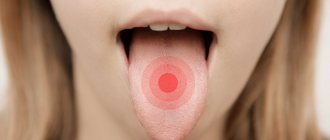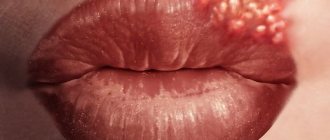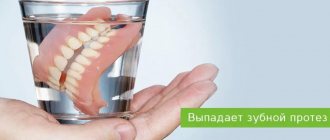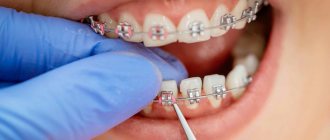What is a panic attack
A panic attack is an attack of sudden fear and severe anxiety for no apparent reason.
The origins of panic disorder are not completely clear. However, it is believed that the disease has a genetic predisposition and more often affects the fair sex. Women are more prone to panic attacks and suffer from this disorder 2-3 times more often than men. Panic attacks cannot lead to death, despite the fact that this is the feeling that most often accompanies them. The more often attacks occur, the worse the quality of life becomes. People who have repeatedly experienced panic attacks become increasingly anxious and subconsciously try to avoid places or situations where and when they succumbed to fear. Those who have at least once experienced an attack at night subsequently experience sleep disorders.
What causes dry mouth?
“I have severe dry mouth in the mornings, and when I’m nervous too. What could it be?" Lyubov Igorevna, Klichev.
- This is a symptom of many diseases or conditions of the body in which saliva production decreases or stops.
About 1.5 - 2 liters of it are produced daily in the human body. To moisten and dissolve the food bolus in the mouth, to disinfect microorganisms that enter the mucous membrane, to maintain the acid-base balance in the oral cavity... Dry mouth can be observed with infections, diseases of the respiratory, nervous system, gastrointestinal tract, as well as with autoimmune processes. Often this is a temporary condition, during the period of exacerbation of any chronic diseases or taking medications. But if your mouth is constantly dry, you should definitely consult a doctor in order to establish a true diagnosis and begin treatment on time. The cause will first be determined by a therapist who will refer the patient to the right specialist (dentist, infectious disease specialist, neurologist, gastroenterologist, otolaryngologist) to clarify the diagnosis. If dry mouth occurs in the morning, after sleep or at night and bothers a person, but is absent during the day, this is a consequence of snoring. And it can be caused by a deviated nasal septum, nasal polyps, as well as hay fever, allergic rhinitis, runny nose, and sinusitis. Dry mouth can also be a side effect of medications: antibiotics, antihypertensives, antifungals, sedatives, muscle relaxants, antidepressants, antihistamines, painkillers, medications for diarrhea, vomiting and others. Any disease that causes increased sweating, fever, chills, diarrhea, vomiting, blood loss can lead to drying of the mucous membranes and dehydration, which is manifested by this symptom. Radiation and chemotherapy for cancer also reduce saliva production.
What to do in case of a panic attack
The most important thing to do during a panic attack is to switch your attention. Any method is suitable for distraction. If an attack occurs in a public place, you can clench and unclench your fists, rub your earlobes, or shift from foot to foot. If panic takes you by surprise at home, try turning on music and starting to do household chores: washing dishes, dusting. Any activity that involves muscle work and requires attention is suitable.
Since a panic attack is accompanied by a rapid heartbeat and a feeling of stuffiness, it would be a good idea to take a couple of sips of water and concentrate on breathing. It is best to master several techniques that will quickly relieve tension. In case of an attack, start by exhaling - slow it down, and the pulse will also slow down. The ratio of the length of inhalation and exhalation should be 1:2. You can experiment and choose the technique that will help you. A smartphone can also help you take your mind off panic. Games, social networks - all this will shift attention and distract from a panic attack.
How is normal anxiety different from a panic attack?
The mechanism that triggers a panic attack is no different from what causes ordinary anxiety - both are psychophysical reactions to danger. The difference is that a panic attack is a reaction to danger in the absence of danger. However, a false alarm triggers the same cascade of reactions as a normal alarm - the sympathetic system is activated, and adrenaline is released.
A panic attack can occur due to excessive physical activity, fatigue and exhaustion, as well as due to the abuse of stimulants and alcohol. In addition, stress and unresolved conflict situations can trigger an attack. A lack of understanding of one's own experiences and feelings, a tendency to avoid and ignore negative emotions also increase vulnerability to panic disorder.
How to treat panic attacks and when to see a specialist
It is necessary to contact a specialist if you have recurring panic attacks. Therapy is selected individually and, as a rule, includes psychotherapeutic work and drug therapy. Psychotherapy involves various techniques aimed at recognizing and understanding the causes of problems, teaching ways to deal with the symptoms of the disease, and relaxation methods. Psychotherapy can take place in the form of individual meetings with a psychotherapist or in the form of group sessions with other patients. Drug therapy for panic disorder is carried out with various drugs that help reduce the level of anxiety and fear. Prescription, dosage adjustment and discontinuation of treatment must be carried out under the supervision of a physician.
Modern neurotechnologies can also help in the treatment of panic attacks. Methods of neurofeedback training have been developed for patients with panic disorder. During the trainings, patients learn to manage their emotional state, they form new neural connections, and their anxiety level decreases. In addition to professional help, lifestyle plays a significant role in the treatment and prevention of panic attacks. Try not to abuse alcohol and caffeine, get more rest, go in for sports, preferably yoga.
Source: https://www.wmj.ru/krasota/telo/golovokruzhenie-zhar-i-dazhe-udushe-simptomy-panicheskikh-atak-i-kak-s-nimi-borotsya-razbiraem-s-vrachom.htm
Back to list
Dry mouth
Sign up for a consultation by phone
Or fill out the form online
Make an appointment An adult produces about one and a half liters of saliva per day on average. It would seem, why so much?
In fact, saliva has many functions.
Firstly, it protects the mucous membranes of the mouth and throat from drying out. Secondly, it protects teeth from caries: it washes away food debris and plaque; slows down the growth of pathogenic bacteria that destroy enamel and cause inflammation of soft tissues; neutralizes acids that form in or enter the mouth. Thirdly, saliva thins food, which makes it easier to swallow and promotes a better sense of taste. And fourthly, saliva contains the digestive enzyme amylase, which begins to digest carbohydrates already in the oral cavity.
The mucous membrane is dried out by breathing through the mouth and snoring - this is most strongly felt upon waking up by people with impaired nasal breathing (for example, with a runny nose) and decreased tone of the soft palate.
There are many reasons for dry mouth, let's look at some of them:
1. Smoking.
Smoking and chewing tobacco causes dry mouth, both due to direct oral contact with smoke and due to decreased saliva production under the influence of nicotine.
2. Excessive salt intake.
Addiction to salty foods also does not contribute to the production of saliva, and the inevitable consumption of large amounts of liquid with salt will sooner or later lead to hypertension. Eating more than 5-7 grams of salt per day is not recommended even for absolutely healthy people.
3. Dehydration.
Dry mouth after physical activity or exposure to a hot, dry climate simply means that the body has lost a lot of moisture and needs to be replenished.
4. Disease.
If dry mouth has been bothering you for a long time, it makes sense to see a doctor - perhaps this is a symptom (sometimes the only one!) of some disease. Most often, dry mouth is a symptom of diabetes.
Also, a decrease in saliva production is observed when the salivary glands are damaged - inflammation, tumor, etc. Dry mouth can also be a symptom of an autoimmune disease - Sjogren's syndrome.
5. Taking medications.
Hundreds of drugs that are used to treat gastrointestinal disorders, cardiovascular diseases, depression and other mental disorders, allergies, infections, malignant neoplasms and other conditions can dry out the oral mucosa.
If dry mouth continues for a long time or appears while taking medication, you should consult a doctor.
Diabetes mellitus is a pathological condition characterized by chronically elevated blood sugar levels, which develops as a result of the influence of hereditary and external factors, threatening the development of serious complications in the eyes, kidneys, blood vessels, and nervous system.
There are two types of diabetes:
- type 1 diabetes,
- type 2 diabetes.
Type I diabetes usually develops in young people whose body does not produce insulin due to damage or loss of beta cells in the pancreas. As a result, the body cannot use glucose and it accumulates in the blood. One of the first symptoms of the disease is dry mouth, thirst, and frequent urination, as the body tries to “flush out” the increasing amount of glucose. Over time, the kidneys can no longer cope with such a load, and abdominal pain, vomiting, and dehydration occur.
Type II diabetes usually develops in people over 40 years of age and who are overweight. They may have normal, low, or even high insulin levels and still have high blood glucose and diabetes. Obesity can contribute to insulin resistance, i.e. The body's cells cannot use insulin properly. In this case, glucose cannot completely penetrate the cells and accumulates in the blood. You can get answers to your questions or make an appointment by calling:
(495) 956-91-03
Benefits of the service
Convenient work schedule
We work until late in the evening to make it convenient for you to take care of your health after work
No queues
The patient registration system has been debugged over many years of work and works in such a way that you will be seen exactly at the chosen time
Cozy interior
It is important to us that patients feel comfortable within the walls of the clinic, and we have done everything to make you feel comfortable
Attention to the patient
At your service there are attentive staff who will answer any question and help you navigate











